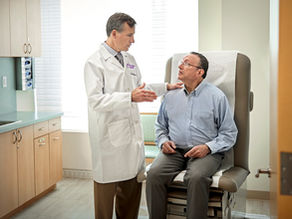top of page
Nagourney Cancer Blog


Blood DNA Test for Early Detection of Cancer Fails
The results of a major study in England testing that hypothesis using the Galleri Multi-Cancer Early Detection (MCED) test just failed miserably.

Dr. Robert A. Nagourney, MD
2 hours ago2 min read


STAGE 4 STOMACH CANCER: NOT A DEATH SENTENCE BUT AN OPPORTUNITY
As seen from our 48-year-old patient, now 11 years since diagnosis, the right treatment for stomach (gastric) and gastroesophageal cancer can be curative.

Dr. Robert A. Nagourney, MD
Dec 2, 20253 min read


Re-Examining Cancer Surgery in the Modern Era: The Way Forward.
Over recent years, there has been a re-awakening of non-curative surgeries. This was pioneered by gynecologic oncologists who conducted upfront chemotherapy, known as neoadjuvant, and then after 3 cycles removed the remaining tumor.

Dr. Robert A. Nagourney, MD
Nov 5, 20252 min read


Small Comfort for Inoperable Pancreatic Cancer Patients
Patients never have a second chance to receive first-line therapy, yet first-line therapy offers the best chance of durable remission.

Dr. Robert A. Nagourney, MD
Jun 9, 20251 min read


What Medical Oncologists Aren’t Telling You About Chemotherapy
These results confirm that the majority of cancer patients in the US today do not respond to the NCCN guideline therapies that their physici

Dr. Robert A. Nagourney, MD
Apr 8, 20253 min read


5 Hidden Truths About Cancer Treatment That Functional Profiling Solves
Your life is too important to rely on statistical averages. Get the personalized approach you deserve.

Dr. Robert A. Nagourney, MD
Mar 12, 20253 min read


For Advanced Biliary Tract Cancer Patients, the Path Forward
Biliary tract cancer afflicts 8,000 patients in the US each year. It is separated into intrahepatic and and extrahepatic.

Dr. Robert A. Nagourney, MD
Feb 25, 20253 min read


Revolutionizing Breast Cancer Screening: The Promise of Metabolomics
metabolomics are poised to revolutionize breast cancer screening by enhancing diagnostic accuracy and reducing patient discomfort.

Dr. Robert A. Nagourney, MD
Jan 20, 20252 min read


For Patients with the Most Advanced Lung Cancers: “Nunquam Cede” (Latin-Never Yield)
I’ve long held that there are no bad cancers, just cancers that we can or cannot treat.

Dr. Robert A. Nagourney, MD
Dec 11, 20243 min read


Why Do Chemotherapy Drugs Work For Some Cancer Patients and Not For Others?
Treatments should really be given more selectively, i.e. “give this chemotherapy only to those people who will benefit from it,” She said.

Dr. Robert A. Nagourney, MD
Nov 19, 20243 min read


Metastatic Breast Cancer Claims Another Life
I received a video from an episode of Americas Got Talent, the popular TV program that features up-and-coming performers.

Dr. Robert A. Nagourney, MD
Sep 26, 20242 min read


Stage 4 Cancer Patients Need Answers Not Questions: Genomic Variants Of Uncertain Significance (VUS) Don’t Help!
Genomic findings are a first step. They find targets. The question the patient wants to answer is “Can I hit the target?”

Dr. Robert A. Nagourney, MD
Sep 5, 20243 min read


bottom of page
